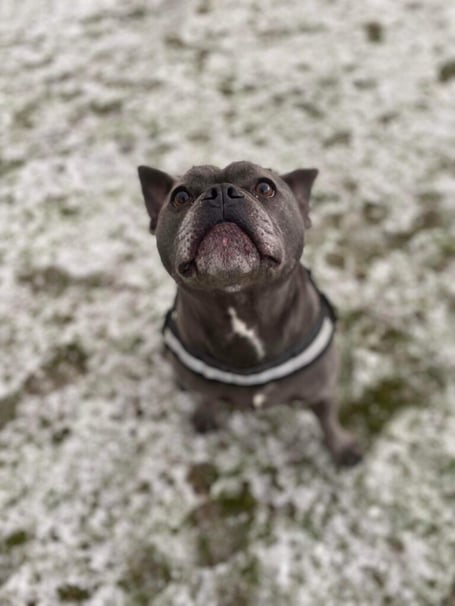Winter, more than any other season, brings its own challenges and potential hazards to our pets.
Older animals, especially if they are arthritic, really feel the cold and the damp and can be noticeably stiff.
If your pet is already on medication then you may wish to speak to your vet about altering their dose to make them more comfortable.
If they are not on any treatment then this is often the time of year they need to start.
It’s also the time of year when car owners are resorting to using de-icer on their car windows, and topping up the anti-freeze in their car radiators, but very few realise just how poisonous the chemicals in these products are for dogs and cats.
Very small amounts can be fatal, and in recent years the RSPCA has tried to quantify the scale of the problem in the UK.
Whilst it can’t put an exact figure on the deaths caused by de-icers and anti-freeze it estimates that the number is in the thousands, exacerbated by the fact that dogs and cats find the liquids used in the products extremely palatable.
So, please mop up any spills and keep the bottle lids tightly closed.
When you are out and about on freezing days and evenings, watch out for the salt grit that has been sprayed because it can cause nasty sores in your dog’s paws.
Snow can also be a problem, much as many dogs love to play in it, because tiny lumps of ice can develop quite quickly in their paws, in between the pads.
Keep a look out for signs of discomfort, and give your dog’s feet a good wash after walks.
Also, don’t forget about smaller pets who live outdoors.
Make sure rabbits and guinea pigs have well insulated hutches, or bring them in to a garage (but please make sure that it is free from engine fumes) or a garden shed.
Remember they still need to have a large enclosure to run in, even if they are indoors. If your pet’s hutch is suitably insulated and left outside, make sure it has plenty of bedding in it and check water bowls twice a day to ensure they haven’t frozen over.
The cats at Ard Jerkyll have individual heaters in their pens, which means that on particularly cold days they may prefer to stay warm in their beds and be reluctant to come to their pen door and greet visitors and potential adopters.
Even the well socialised cats may be a little reticent, but please spare a thought for the shy cats.
Muz (tabby and white) and Mon (ginger) are one-year old boys who came from a very quiet home and our busy cattery environment makes them a little withdrawn. They will need a patient new owner who will help them develop their confidence, and a home environment that is calm and tranquil.
The dogs in our rescue and boarding kennels enjoy underfloor heating in their pens and so even the worst winter days don’t affect them adversely; and dogs with short coats, like Tyson, are given extra bedding.
Five-year-old Tyson is a French bulldog cross Staffie, and his beautiful grey colouring is known as ‘blue’.
His previous owner didn’t have enough time for him, and so he’s come to us through no fault of his own.
Given he’s used to an adult-only environment, and he can be nervous, we would rather he went to a home where there are no young children or other pets. He’s great fun to be around, and loves to play.
He’s an enthusiastic walker as well, even on wet and windy days, and so his new owners will need to have the time and energy to devote to him.
If you have arranged your holidays for 2023 please don’t leave it too late to book your dogs in for boarding.
We are already starting to fill up during the peak holiday periods, with regular boarding guests coming back year after year.
Our doggy boarders enjoy snug indoor pens adjacent to their own large runs, and they are taken on walks and given the freedom to run around the exercise fields several times a day.
Our experienced staff team are able to cope with the most nervous or temperamental of dogs, and those who have health issues and need regular medication and special diets.

.jpg?width=209&height=140&crop=209:145,smart&quality=75)


